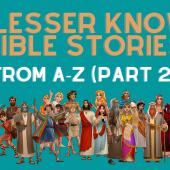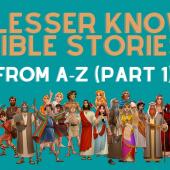I Want to Know What Love Is (Love Jeopardy Bible Quiz) AY
To play the full Jeopardy game, you will need a computer, and a screen or projector to display to the audience.
Download the Powerpoint file here to play the game following the instructions located here.
If you do not have multimedia tools, you can simply read the questions and answers from this PDF file.
OPENING PRAYER [1 minute]:
SONG SERVICE [15 minutes]:
OPENING/THEME SONG [3 minutes]: 248 – O, How I Love Jesus
SCRIPTURE READING [2 minutes]: 1 Cor 13:4,5
PRAYER [3 minutes]:
PRELIMINARIES[3 minutes]:
AY MISSION:
The salvation of youth through Jesus Christ. We understand youth ministry to be that work of the church that is conducted for, with, and by young people.
AY AIM:
The Advent message to all the world in my generation.
AY MOTTO:
The love of Christ compels me.
AY PLEDGE:
Loving the Lord Jesus, I promise to take an active part in the youth ministry of the church, doing what I can to help others and to finish the work of the Gospel in all the world.
AY SONG:
Adventist youth are we from every land and sea
Together we pray and work and play in happy harmony
We have a faith to share
With others everywhere
A message of love from God above
To show the world we care
Adventist youth, Adventist Youth, Adventist Youth
WELCOME & GREETING [5 minutes]:
ACTIVITIES [15 minutes]:
Morning Watch, Testimonies, Hot Seat, Action group/unit meetings, etc.
PROGRAM INTRODUCTION [2 minutes]:
SPECIAL [5 minutes]:
MAIN PROGRAM [45 minutes]:
Introduce the Love Jeopardy Bible Quiz. Feel free to choose whether or not to keep score, use individuals or groups or just throw the questions randomly across the congregation. The Quiz will be the first part of the program.
The English language is very general with the word love. You can use the same word to say "I love my wife" or "I love to eat bananas". Neither statement truly conveys the magnitude or kind of love you are expressing for them, in fact, if you say "I love my wife and I really love to eat bananas", it almost sounds like you have greater love for bananas.
Thankfully, the Bible was not originally written in English, so we have insights as to how the word "love" was used in its various contexts in the Bible. Today, we will be focusing on love in the the Greek language, and we will learn what words are used to express the different forms of love, what they mean and how they were used.
There 4 types of Love
The ancient Greeks had at least 8 words to represent the different types of love. For this program, we will stick to four of the most common, and the types you can observe in the Bible. These four are Eros, Storge, Philia, and Agape. Not all of these words are directly found in the Greek new testament, but understanding their meaning, makes it more clearer what the Author was trying to convey.
Phileō
The first type of love we will look at is Phileō. This defines an affectionate or kindly love, generally referred to as brotherly love. Examples can be found in Matthew 10:37, John21:17, Titus 3:15. In the modern world, we often refer to this as platonic love.
Storge
"Storge is only used a few times. Below is one instance in the New Testament.
In Romans 12:10 “storge is used as part of a compound word with philos:” philostorgos “… is translated devoted or kindly affectionate. Phílos means “dear friend; actively, fond, friendly” and “storgḗ (cherishing one’s kindred, especially parents or children); fond of natural relatives, i.e. fraternal towards fellow Christian.” Wikipedia records that “storge means “love, affection” and “especially of parents and children”… It’s the common or natural empathy, like that felt by parents for offspring… Rarely used in ancient works, and then almost exclusively as a descriptor of relationships within the family. [Source]
Eros
“Éros means “love, mostly of the sexual passion.” The Modern Greek word “erotas” means “intimate love.” Plato refined his own definition: Although eros is initially felt for a person, with contemplation it becomes an appreciation of the beauty within that person, or even becomes appreciation of beauty itself. Plato does not talk of physical attraction as a necessary part of love, hence the use of the word platonic to mean, “without physical attraction.”[Ibid]
Agape
“The most common word for all forms of love in the New Testament is agape, agapao. This is one of the least common words in classical Greek, where it expresses, on the few occasions it occurs, that highest and noblest form of love which sees something infinitely precious in its object.” (1)
Agape [noun] and agapao [verb] according to Vine’s “are used in the New Testament
- (a) to describe the attitude of God toward His Son, John 17:26
 ; the human race, generally, John 3:16
; the human race, generally, John 3:16 ;… and to such as believe on the Lord Jesus Christ, particularly, John 14:21
;… and to such as believe on the Lord Jesus Christ, particularly, John 14:21
- (b) to convey His will to His children concerning their attitude one toward another, John 13:34
 , and toward all men, 1 Thessalonians 3:12
, and toward all men, 1 Thessalonians 3:12 …
… - (c) to express the essential nature of God, 1 John 4:8
 .” (2)
.” (2)
“Love can be known only from the actions it prompts. God’s love is seen in the gift of His Son, 1 John 4:9 ,10
,10 . [Ibid]
. [Ibid]
Activity
Create 3 or 4 groups and have them create Acronymns for the word L.O.V.E and present them to the congregation.
VESPER SERVICE [10 minutes]
CHARGE
CLOSING SONG
PRAYER
DEPARTURE SONG [1 minute]:
ANNOUNCEMENTS:









Comments
- Reply
Permalink- Reply
Permalink- Reply
Permalink- Reply
Permalink- Reply
Permalink- Reply
Permalink- Reply
Permalink- Reply
Permalink- Reply
Permalink- Reply
Permalink- Reply
Permalink- Reply
Permalink- Reply
Permalink- Reply
Permalink- Reply
Permalink- Reply
Permalink- Reply
PermalinkVery creative program and I learned new things and new way of setting my Sabbath School and AY programming
- Reply
Permalink- Reply
Permalink- Reply
Permalink